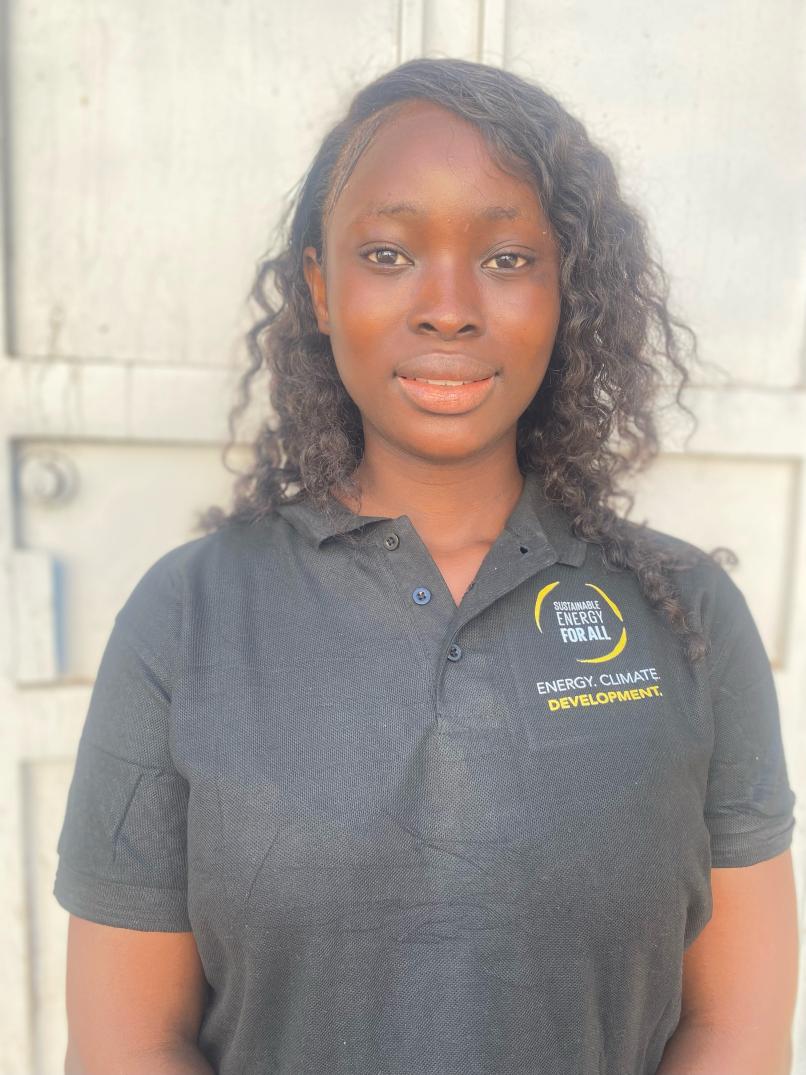Perspectives from the field: An interview with SEforALL Women in STEM trainee Bintu Jalloh
Sustainable Energy for All (SEforALL) launched its Women in STEM (science, technology, engineering and math) traineeship in Sierra Leone on 8 March. This innovative six-month programme is providing technical training to 12 recent or soon-to-be university graduates by having them participate in a local health electrification project and online skills training.
Trainees have already begun several online courses covering topics that will be valuable to their burgeoning energy careers, and they will soon be on-site at hospitals and clinics in Sierra Leone, working closely with SEforALL and its implementing partner, EM-One, to develop solar installations.
Bintu Jalloh is one of the 12 trainees, and we recently asked her about her experiences within the programme thus far and what she is looking forward to in the months ahead.
Q: Why is it important for you and other women to gain experience in STEM, specifically within the energy sector?
A: As a woman in STEM, I believe in being empowered and being a citizen that will contribute greatly to the development of my country and Africa as a whole. The energy sector is very important for building a more sustainable future, so learning and experiencing different aspects of the sector now will be a life-changing opportunity for me. It will broaden my skill-set and help me identify where I can have the greatest impact on Sierra Leone’s energy transition.
Q: How is the SEforALL Women in STEM traineeship going so far? What have been some of the highlights from the first month?
A: It has been a great educative and interactive experience so far. The past few weeks of training have given me the opportunity to meet with great people involved in the energy sector who are at the forefront in making sure SDG7 is attained by 2030.
Interactive virtual sessions were organized to give me the opportunity to learn about how important renewable energy is to Africa and how the economic growth of a country like Sierra Leone can be developed through the energy sector.
The Health, Safety and Environment training session conducted by the EM-One team gave me many practical tips that are relevant to working on-site at energy projects like those being carried out on health facilities.
We learned how to identify potential risks and hazards faced in the workplace, especially when installing solar panels; safety signs and symbols; reporting of incidents; how important personal protective equipment (PPEs) are and how to use them; the hierarchy of controls; and other environment-related health and safety issues.
The soft skills training was also one of my favourites because the subjects we covered will definitely help me excel in my future endeavours. This training opened my eyes to how to maintain a good working relationship with people, how to manage my time, set my goals, and work towards achieving them. It also taught me to be confident enough to ask questions, give my input on things, bring my ideas on board rather than been silent in a room, and to have the confidence to speak in public, which has been one of my greatest fears.
Q: What are you looking forward to most in the coming months? Are there any specific skills or experiences you hope to gain?
A: As the training continues, I’m hoping that the programme becomes even more interesting and informative. In particular, I look forward to gaining leadership, technical and project management skills. The opportunity to work with different experts in the energy sector on- and off-site installing solar panels, repairing equipment and working on other projects will be highly appreciated.
Getting to witness the different steps involved in connecting these hospitals to reliable, solar energy from a project management perspective, and then executing some of the physical installation work will be a new experience for me, so it will very rewarding.
